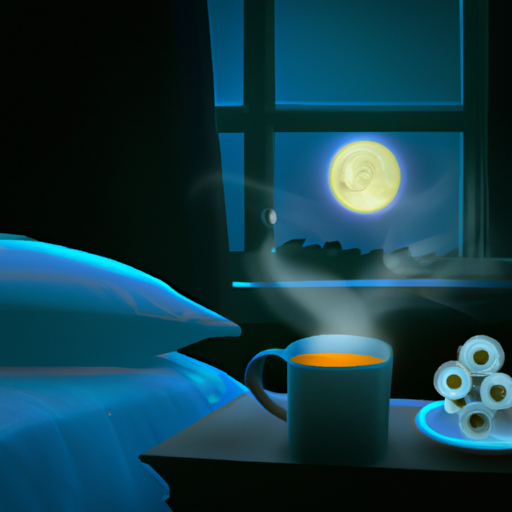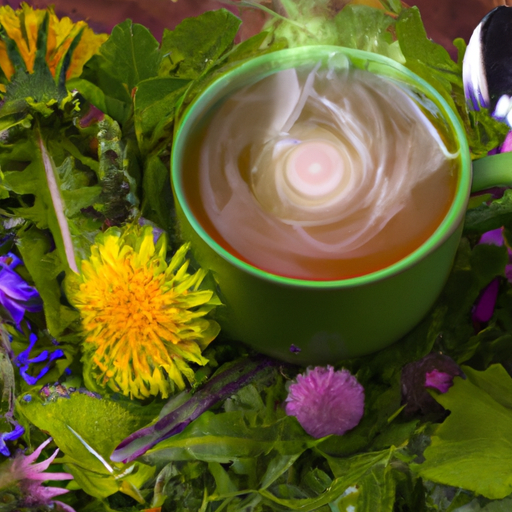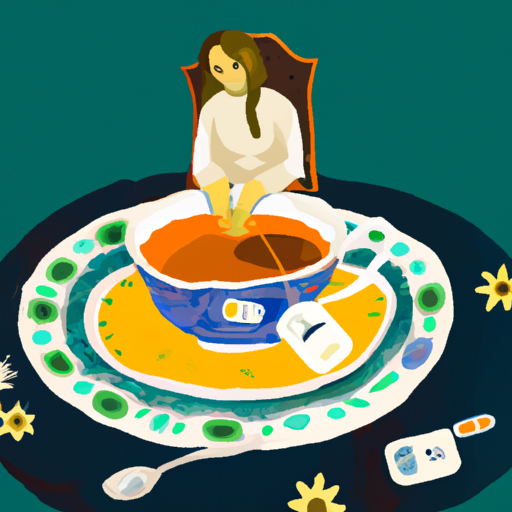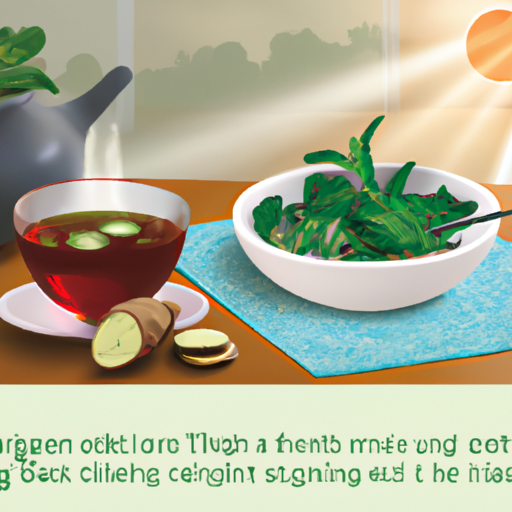Did you know that nearly 30% of adults struggle with sleep-related issues? If you’re one of them, you’re not alone.
Thankfully, there are natural remedies, such as herbal tea, that can help promote relaxation and improve sleep quality. In this article, I will explore the world of herbal teas known for their relaxing and sleepy effects.
One popular choice is chamomile tea, which has been used for centuries to calm the mind and soothe the body.
Lavender tea, on the other hand, is known for its ability to reduce anxiety and promote restful sleep.
Valerian root tea is another powerful option that has been used as a natural sleep aid for centuries.
Peppermint tea, lemon balm tea, and passionflower tea are also worth considering for their calming properties.
For those looking for a blend of relaxation and sleepiness, a chamomile and lavender tea blend might be the perfect choice.
Lastly, ashwagandha tea is known for its stress-reducing effects, helping you unwind before bedtime.
Join me as we delve into the world of herbal teas and discover the perfect brew to help you relax and achieve a restful night’s sleep.
Key Takeaways
- Chamomile and lavender tea promotes relaxation and restful sleep.
- Ashwagandha tea promotes relaxation and sleep, and supports healthy sleep patterns.
- Lavender in chamomile and lavender tea has a soothing aroma that reduces stress.
- Ashwagandha tea has adaptogenic properties to cope with stress and balances neurotransmitters in the brain, alleviating anxiety with regular consumption.
Chamomile Tea
If you want a herbal tea that helps you relax and get sleepy, chamomile tea is perfect for you!
Chamomile tea has been used for centuries for its calming and soothing effects on the body and mind. It’s known for its numerous health benefits, such as reducing anxiety, promoting better sleep, soothing digestive issues, and boosting the immune system.
To make the perfect cup of chamomile tea, start by boiling water and pouring it over a chamomile tea bag or loose chamomile flowers. Let it steep for about 5 minutes to release all the beneficial compounds. You can add a touch of honey or lemon if desired.
The warm aroma and gentle taste of chamomile tea make it a delightful beverage to enjoy before bedtime.
Now, let’s move on to the relaxing effects of lavender tea.
Lavender Tea
Lavender tea is a wonderful herbal remedy that calms the nervous system, induces relaxation, and improves sleep quality. The active compounds in lavender, such as linalool and linalyl acetate, have been shown to have sedative effects on the central nervous system. This not only helps to reduce anxiety and stress, but also promotes a restful and rejuvenating sleep.
Calms the Nervous System
Chamomile tea can help relax the nervous system, promoting a restful night’s sleep and easing anxiety, as experienced by Sarah, who found relief from her chronic insomnia after incorporating chamomile tea into her bedtime routine. This herbal tea contains compounds that act as natural remedies for stress and anxiety. Here are five reasons why chamomile tea is effective in calming the nervous system:
- Chamomile tea contains apigenin, a flavonoid that binds to certain receptors in the brain, promoting relaxation.
- It increases the production of serotonin, a neurotransmitter that helps regulate mood and sleep.
- Chamomile tea has anti-inflammatory properties that can reduce inflammation in the nervous system, alleviating anxiety.
- This herbal tea acts as a mild sedative, reducing hyperactivity in the nervous system and promoting relaxation.
- Chamomile tea is caffeine-free, making it a safe and non-stimulating option for those seeking a peaceful night’s sleep.
Inducing relaxation and improving sleep quality, chamomile tea is a valuable addition to one’s bedtime routine.
Induces Relaxation and Improves Sleep Quality
By incorporating chamomile tea into your nightly routine, you can experience a deep sense of relaxation and achieve a more restful sleep. Chamomile tea has been used for centuries as a natural remedy for insomnia and anxiety due to its calming properties. Its effects on the nervous system help to reduce anxiety, promoting a state of relaxation that aids in falling asleep faster and improving sleep duration. Chamomile tea contains compounds that bind to specific receptors in the brain, resulting in a sedative effect and reducing the time it takes to fall asleep. Furthermore, chamomile tea has been shown to improve sleep quality by reducing nighttime awakenings and promoting a deeper, more restorative sleep. This herbal tea is a gentle and effective option for those seeking a natural solution to improve sleep. Transitioning to the subsequent section about valerian root tea, another herbal tea known for its sleep-inducing properties.
Valerian Root Tea
Valerian Root Tea is known for its relaxing and sleep-inducing effects. Studies show that it can improve sleep quality by up to 89%. Valerian root, derived from the Valeriana officinalis plant, has been used for centuries as a natural remedy for sleep disorders and anxiety. The active compounds in valerian root, such as valerenic acid and valeranon, have sedative properties that help promote relaxation and calmness.
Additionally, valerian root benefits include reducing the time it takes to fall asleep and improving overall sleep quality. However, it’s important to note that valerian root may have some side effects, such as headaches, stomach problems, and dizziness. It is always recommended to consult with a healthcare professional before using valerian root tea for its sleep-inducing effects.
Moving on to peppermint tea, another herbal tea with its own unique benefits…
Peppermint Tea
Take a sip of peppermint tea and let its invigorating aroma awaken your senses and provide a refreshing burst of flavor.
Peppermint tea is not only delicious, but it also offers numerous benefits. Known for its soothing properties, peppermint tea can help relax both the mind and body, making it an ideal choice for those looking to unwind and prepare for a restful sleep. Its distinct flavor profiles, which are a combination of cool menthol and subtle sweetness, make it a delightful beverage to enjoy any time of day.
Peppermint tea has been found to aid in digestion, alleviate headaches, and even enhance cognitive function.
As we transition to the subsequent section about ‘lemon balm tea’, it’s important to note that both these herbal teas share similar properties, but with their own unique flavors and effects.
Lemon Balm Tea
Sip on a cup of lemon balm tea and let the bright citrusy notes dance on your taste buds, filling you with a sense of warmth and tranquility. Lemon balm tea, derived from the leaves of the Melissa officinalis plant, has been used for centuries due to its numerous health benefits.
This herbal tea is known for its calming properties, making it an ideal choice for those seeking a relaxing and sleepy effect. Lemon balm contains compounds that promote relaxation and may help alleviate anxiety and promote better sleep. Additionally, lemon balm tea is rich in antioxidants, which can support overall well-being.
To make a refreshing lemon balm iced tea, simply steep lemon balm leaves in boiling water, let it cool, and add ice.
As we transition to the subsequent section about passionflower tea, another herbal tea with relaxing properties, it’s important to explore the wide range of options available for achieving a peaceful night’s sleep.
Passionflower Tea
After discussing the calming effects of Lemon Balm Tea, let’s move on to another herbal tea that can help promote relaxation and sleep: Passionflower Tea. This herbal infusion is made from the leaves and flowers of the passionflower plant, scientifically known as Passiflora incarnata.
Passionflower tea has been used for centuries for its various health benefits. It’s known for its calming properties and ability to reduce anxiety and insomnia. Drinking passionflower tea before bedtime can help you unwind and prepare for a restful night’s sleep.
To experience the maximum benefits of passionflower tea, it’s important to use the correct dosage. It’s recommended to drink 1-2 cups of passionflower tea per day. However, it’s always advisable to consult with a healthcare professional to determine the appropriate dosage for your specific needs.
In the next section, we’ll explore another herbal tea blend that’s renowned for its relaxing properties: chamomile and lavender tea blend.
Chamomile and Lavender Tea Blend
Indulging in a warm cup of this soothing blend will transport you to a state of pure tranquility and bliss. Chamomile and lavender tea is a delightful combination that not only tantalizes the taste buds, but also offers numerous benefits for relaxation and sleep. Chamomile, known for its calming properties, helps to alleviate anxiety and promote restful sleep. Lavender, on the other hand, is renowned for its soothing aroma that can reduce stress and induce a sense of calmness. Together, these two herbs create a powerful blend that can help you unwind after a long day and prepare for a peaceful night’s sleep. To make this tea, simply steep a tablespoon of dried chamomile flowers and a teaspoon of dried lavender buds in hot water for 5-10 minutes. Sip slowly and let the soothing effects wash over you. Transitioning into the next section, ashwagandha tea is another herbal remedy that promotes relaxation and can be a great addition to your bedtime routine.
Ashwagandha Tea
Ashwagandha tea, with its calming properties, can help you unwind and prepare for a peaceful night’s sleep. This herbal tea has been used for centuries in Ayurvedic medicine for its numerous health benefits. Here are four reasons why you should consider incorporating ashwagandha tea into your bedtime routine:
-
Stress reduction: Ashwagandha is known for its adaptogenic properties, which help the body cope with stress. Drinking ashwagandha tea can help calm the mind and promote relaxation.
-
Improved sleep quality: Ashwagandha tea has been shown to support healthy sleep patterns and improve sleep quality. It can help you fall asleep faster and wake up feeling refreshed.
-
Anxiety relief: Ashwagandha has been found to reduce anxiety symptoms by balancing neurotransmitters in the brain. Regular consumption of ashwagandha tea can help alleviate feelings of anxiety and promote a sense of calm.
-
Simple preparation: To make ashwagandha tea, steep 1 teaspoon of dried ashwagandha root powder in hot water for 5-10 minutes. Strain and enjoy before bedtime.
Incorporating ashwagandha tea into your bedtime routine can provide you with a natural and effective way to relax and promote a restful sleep.
Frequently Asked Questions
Can herbal teas cause any side effects or interactions with medications?
Yes, herbal teas can potentially interact with medications and cause side effects. It is important to consult with a healthcare professional before consuming herbal teas, especially if you are taking any medications.
How long does it take for herbal teas to start inducing a relaxing sleepy effect?
On average, herbal teas take about 30-60 minutes to start inducing a relaxing sleepy effect. Factors like the type of tea, dosage, individual metabolism, and overall health can influence the onset of these effects.
Are there any recommended dosages for consuming herbal teas for their relaxing effects?
When consuming herbal teas for their relaxing effects, it is important to consider recommended dosages. Different types of herbal teas have varying dosages, so it’s best to follow guidelines provided by experts for optimal results.
Can herbal teas be safely consumed by pregnant or breastfeeding women?
As an expert in herbal teas, I must emphasize the importance of caution when it comes to consuming them during pregnancy or while breastfeeding. While some herbal teas may have potential benefits, they can also impact milk production and pose risks.
Are there any specific instructions on how to prepare herbal teas for maximum effectiveness?
Different brewing methods, temperature, and steeping time play a crucial role in maximizing the benefits of herbal teas. By following specific instructions, such as adjusting water temperature and steeping time, one can enhance the effectiveness of herbal teas.
Conclusion
In conclusion, herbal teas such as chamomile, lavender, valerian root, peppermint, lemon balm, passionflower, chamomile and lavender blend, and ashwagandha have been known to have a relaxing and sleepy effect.
These teas contain natural compounds that interact with our brain receptors, promoting relaxation and reducing anxiety.
One interesting statistic to note is that a study conducted on chamomile tea showed that participants who drank this tea experienced improved sleep quality by 34%.
So, next time you’re looking for a natural way to unwind and get a good night’s sleep, consider trying one of these herbal teas.










